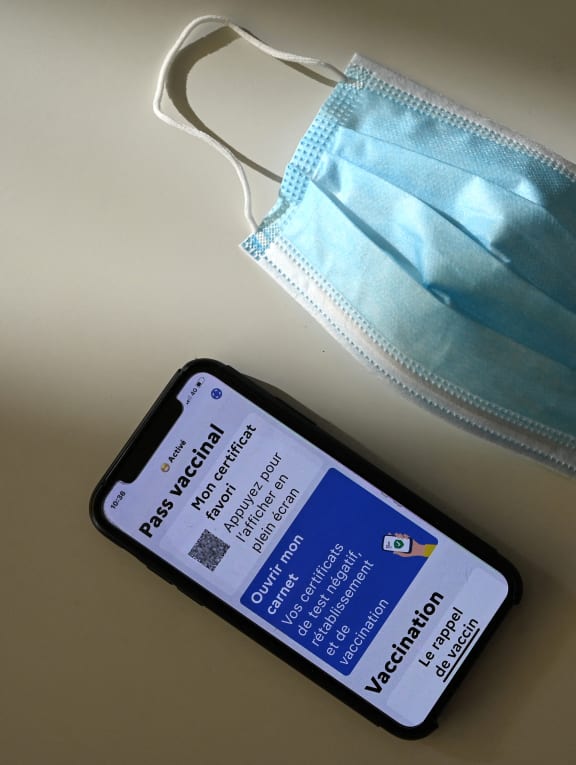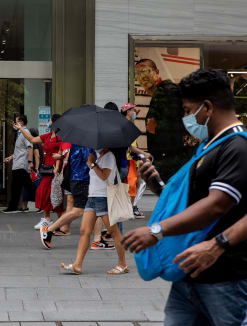Explainer: Why EU nations are lifting Covid-19 restrictions despite high case numbers and should Singapore do the same?

A face mask and a health pass on a mobile phone screen connected to a Covid-19 tracing application in France, which allows people vaccinated against Covid-19 to access bars, restaurants or regional transports.
SINGAPORE — Several European Union (EU) countries are lifting most, if not, all of their Covid-19 restrictions, despite recording high number of Covid-19 cases.
Denmark removed all restrictions, including mask-wearing and Covid-19 vaccination passes, on Tuesday (Feb 1) — the first EU country to do so.
Yet, the World Health Organization (WHO) cautioned on Tuesday against relaxing Covid-19 curbs prematurely since many countries have not reached the peak of the Omicron infection wave, adding that public health and safety measures imposed to curb the spread of the coronavirus should be relaxed gradually.
Associate Professor Alex Cook, vice-dean of research at the Saw Swee Hock School of Public Health, said that even though the number of Covid-19 cases are high, the number of patients in the intensive care units (ICU) in Denmark has been falling and France's level of infections are lower than the first three waves it witnessed.
Professor Dale Fisher, an infectious diseases expert from the National University of Singapore (NUS) Yong Loo Lin School of Medicine, echoed similar sentiments, saying that case numbers are no longer an important metric in most countries.
Given Singapore's high vaccination rate, some infectious diseases experts believe that Singapore should also start easing some of these restrictions imposed to curb the spread of the coronavirus.





